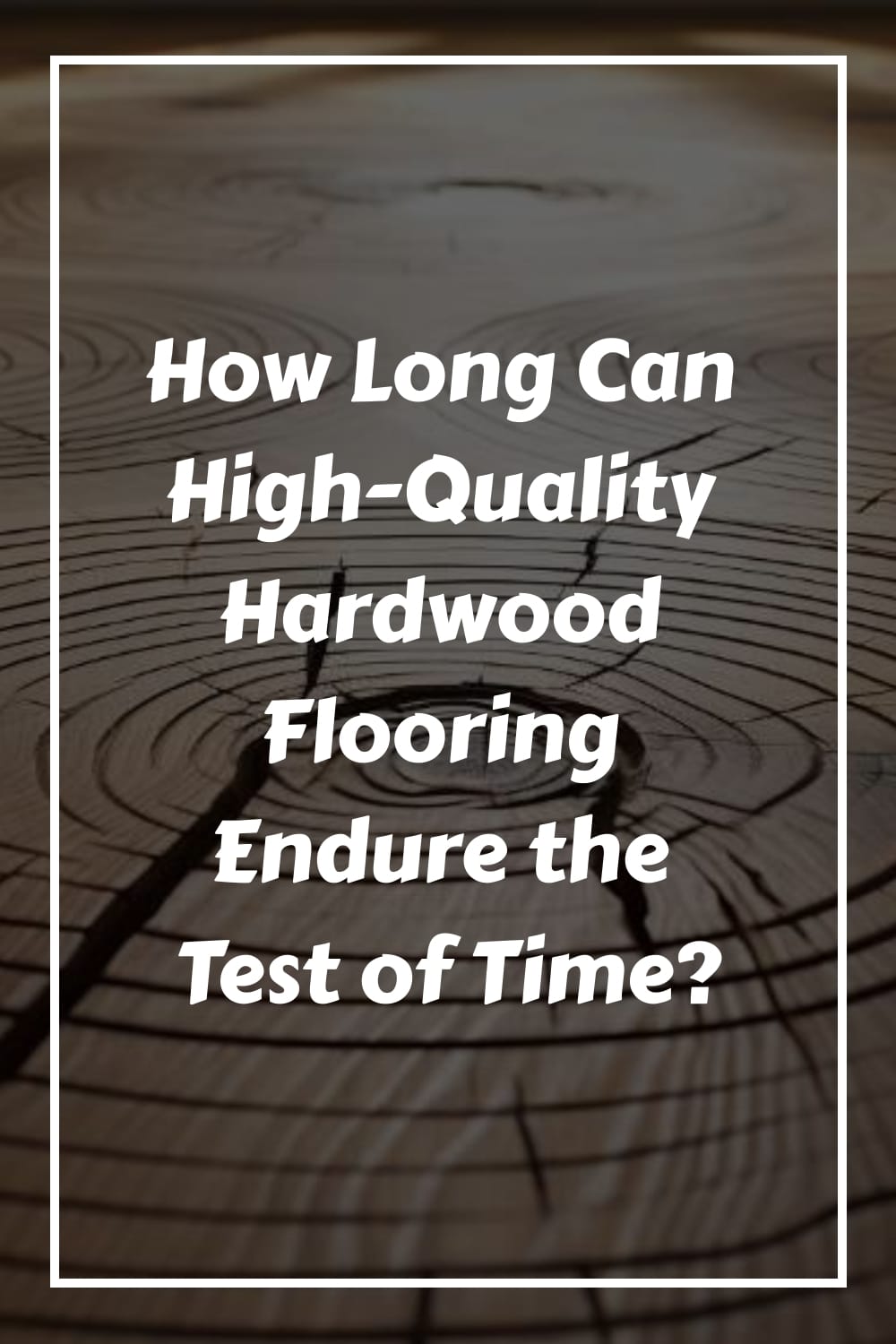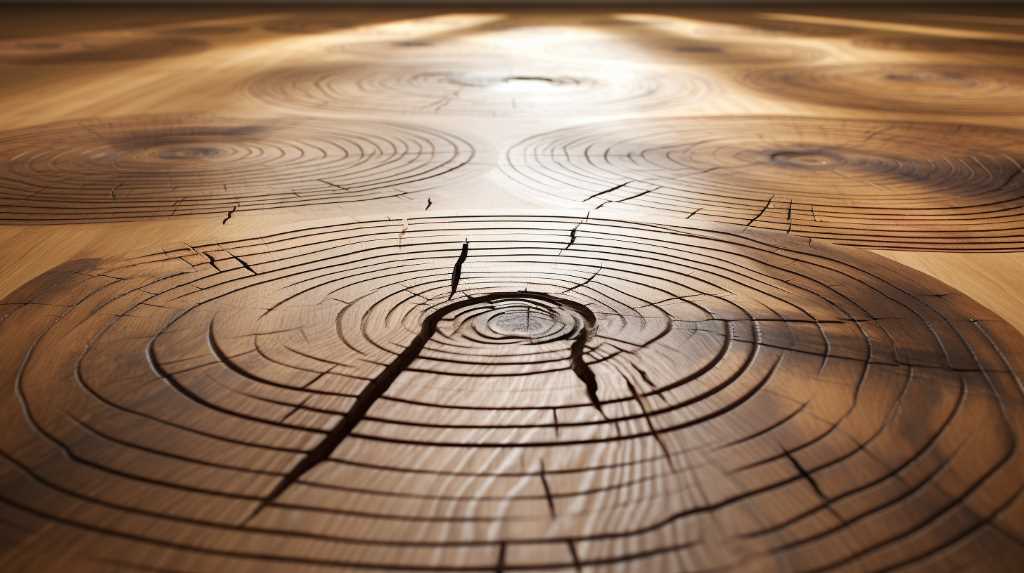
High-Quality Hardwood Flooring Endure the Test of Time
Solid hardwood floors can withstand the test of time with proper care and maintenance for an astonishing 30 to 100 years. It’s crucial to understand that the durability of these floors heavily relies on the type of wood used. Whether it’s the robustness of oak or the timeless beauty of cherry, the choice of timber can significantly enhance the longevity of your hardwood flooring.
To ensure that your hardwood flooring continues to stand the test of time, it’s vital to follow crucial maintenance tips. Regular sweeping is essential to keeping your floors from debris and preventing scratches. Additionally, refinishing the floors every few years can restore their lustre and protect them from wear and tear. By implementing these maintenance practices, you can prolong the lifespan of your hardwood flooring and maintain its pristine condition for years to come.
To provide a well-rounded perspective, it’s essential to consider alternative viewpoints on maintaining high-quality hardwood flooring. While experts may highlight its durability, it’s crucial to acknowledge the potential challenges and considerations of owning these floors. Factors such as humidity levels, exposure to sunlight, and proper installation techniques can significantly affect the longevity and performance of hardwood floors.
When it comes to the endurance of high-quality hardwood flooring, it’s essential to understand its durability and maintenance requirements. By following crucial maintenance tips and considering alternative viewpoints, you can ensure that your hardwood floors stand the test of time. With the proper care, these floors can provide timeless beauty and lasting durability for decades. So, take the time to master the art of maintaining and understanding the impressive longevity of high-quality hardwood flooring.
In this comprehensive exploration of hardwood flooring, we have covered its durability, lifespan, and maintenance requirements. By delving into the various types of wood, such as oak or cherry, and understanding how they enhance the longevity of your floors, you can make informed decisions for your home. From regular sweeping to refinishing, the crucial maintenance tips will guide you in ensuring the longevity of your hardwood flooring.
It’s always valuable to consider the viewpoints of experts in the field. Renowned flooring specialists emphasize the exceptional durability and longevity of high-quality hardwood flooring. However, it’s also essential to acknowledge alternative perspectives highlighting potential challenges and considerations in maintaining these floors.
Key Takeaways
- Longevity of Hardwood Flooring: Solid hardwood floors can last 30 to 100 years, depending on the wood type and maintenance.
- Wood Type Importance: The durability of hardwood floors dramatically depends on the chosen wood species, such as oak’s robustness or cherry’s beauty.
- Maintenance is Key: Regular sweeping, refinishing every few years, and proper care are essential for prolonging the lifespan and maintaining the condition of hardwood floors.
- Challenges and Considerations: Factors like humidity, sunlight exposure, and proper installation techniques significantly affect the longevity and performance of hardwood floors.
- Variability in the Lifespan of different types of new flooring.: The lifespan ranges from 20 to 100 years, influenced by the wood type, finish, and maintenance routine.
- Differences in Hardwood Types: Solid hardwood floors are more durable than engineered hardwood, with the latter having a lifespan of 20 to 30 years.
- Importance of Installation: The installation process is crucial for the floors’ immediate aesthetics and long-term stability.
- The role of Finish Quality in natural wood and laminate flooring.: High-quality finishes protect hardwood floors from scratches, dents, and moisture, thus extending their lifespan.
- Wear Resistance: Floors’ longevity is significantly influenced by wear resistance; hardwoods like Hickory and Brazilian Cherry rank high in the Janka Hardness Test.
- Wood Species and Finish Quality: Different species have varying durability levels; high-quality polyurethane finishes add to this durability.
- Durability Factors: Beyond wood type, factors like finish, maintenance, and weather conditions impact the longevity of hardwood floors.
- Weather Conditions’ Impact: Moisture and humidity levels, alongside the type of wood and finish quality, affect the floors’ durability.
- Maintenance Tips: Emphasize regular cleaning, use of appropriate products, and preventive measures like floor mats to reduce wear.
- Professional Maintenance Value: Professional upkeep, such as refinishing, can significantly increase the value and lifespan of natural wood floors and new luxury vinyl flooring.
- Sustainable Practices: Canadian Home Style’s commitment to eco-friendly and sustainable flooring options aligns with current environmental trends.
Understanding the Lifespan of High-Quality Hardwood Floors
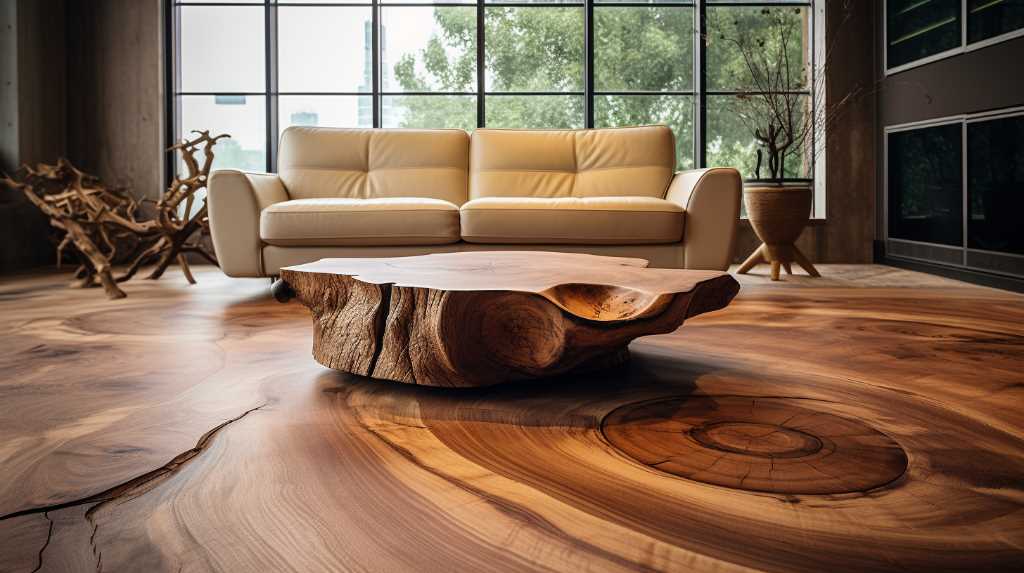
When it comes to hardwood flooring, longevity is a crucial consideration. The lifespan of hardwood flooring can range from 20 to 100 years, depending on various factors such as the type of wood, the finish applied, and the maintenance routine.
Solid hardwood floors are renowned for their durability and can last anywhere from 30 to 100 years with proper care. This is a testament to the exceptional quality and resilience of solid hardwoods. On the other hand, engineered hardwood, while still durable, typically has a lifespan of 20 to 30 years.
The installation process plays a crucial role in determining the lifespan of your hardwood floors. A well-executed installation not only ensures the immediate aesthetics of your floor but also contributes to its long-term stability. It is essential to work with experienced professionals who understand the intricacies involved in the installation process.
The durability of your hardwood flooring is also influenced by the type of finish applied. A high-quality finish can protect your floors from scratches, dents, and moisture, extending their lifespan. It is advisable to choose a finish specifically designed for hardwood flooring and follow the manufacturer’s guidelines for application and maintenance.
Regular maintenance is paramount in preserving the lifespan of your hardwood floors. Sweeping and mopping regularly, using appropriate cleaning products, and periodically refinishing the floors can keep them looking fresh and vibrant for years to come. It is essential to follow the recommended maintenance schedule provided by the manufacturer to ensure optimal results.
Average Lifespan and Wear Resistance
The average lifespan of high-quality hardwood floors can be between 25 to 100 years, significantly influenced by the floor’s wear resistance. Wear resistance refers to the floor’s ability to withstand daily wear and tear. According to the Janka Hardness Test, hardwoods like Hickory and Brazilian Cherry are among the most wear-resistant. This resistance to scratches, dents, and general wear plays a pivotal role in determining the longevity of the flooring.
The Role of Wood Species and Finish Quality
Different wood species have varying levels of hardness and durability. For example, oak, maple, and cherry are famous for their resilience. The finish quality also plays a significant role. Floors with high-quality polyurethane finishes are more resistant to scratches and moisture, contributing to a longer lifespan. The Forest Stewardship Council (FSC) recommends using sustainably sourced hardwoods that ensure durability and contribute positively to the environment.
The Durability of Premium Hardwood Flooring: A Long-Term Investment
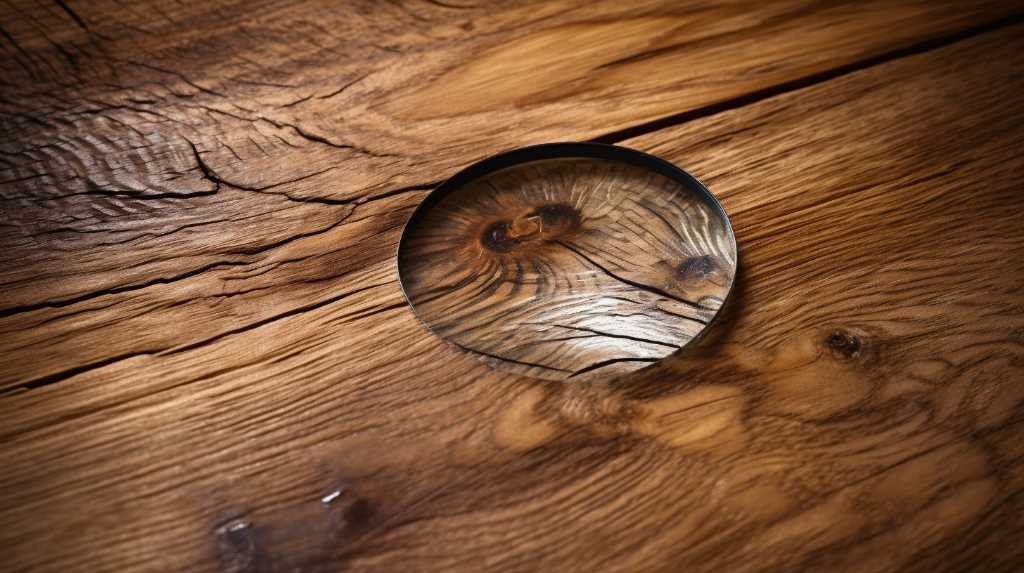
When evaluating the durability of hardwood flooring, it is essential to consider various factors. These factors go beyond just the type of wood used and include elements like the finish, regular maintenance, and even weather conditions. All of these elements can have a significant impact on the longevity of hardwood floors. By considering these crucial factors, you can make a more informed decision regarding the durability of your hardwood flooring.
The type of wood used in hardwood flooring is crucial in its durability. Different types of wood have varying hardness levels and wear and tear resistance. For example, hardwoods like oak and maple are known for their durability and ability to withstand heavy foot traffic. On the other hand, softer woods like pine may be more susceptible to scratches and dings. Understanding the characteristics of different wood types is crucial in assessing the durability of your hardwood flooring.
In addition to the type of wood, the finish applied to hardwood flooring is another essential factor to consider. The finish acts as a protective layer that shields the wood from stains, moisture, and scratches. A high-quality finish can significantly enhance the durability of hardwood flooring by preventing damage and preserving its appearance over time. Therefore, choosing a suitable finish that matches your lifestyle and maintenance preferences is crucial.
Regular maintenance also plays a vital role in maintaining the durability of hardwood flooring. Sweeping or vacuuming regularly to remove dirt and debris can prevent scratches and abrasions. Additionally, using proper cleaning products and techniques can help protect the finish and maintain the shine of the wood. By following a regular maintenance routine, you can ensure the longevity of your hardwood flooring and keep it looking its best for years to come.
Weather conditions can also impact the durability of hardwood flooring. Changes in humidity levels can cause the wood to expand or contract, leading to gaps or warping. It is essential to ensure that your oak flooring or any wood floor is properly acclimated to the environment in which it will be installed. Controlling the indoor humidity levels and using appropriate measures, such as humidifiers or dehumidifiers, can help minimize the impact of weather conditions on the durability of hardwood flooring.
Despite taking all the necessary precautions, it is essential to acknowledge that no hardwood flooring is entirely immune to wear and tear. Over time, even the most durable hardwood floors may show signs of aging. However, by considering the type of wood, the finish, regular maintenance, and weather conditions, you can maximize the durability of your hardwood flooring and enjoy its beauty and functionality for many years to come.
Hardwood Lifespan Factors
When it comes to the longevity of your hardwood floors, there are several key factors that you should consider. By understanding these factors, you can make informed decisions about the type of hardwood that will best suit your needs and stand the test of time.
- Type of Hardwood: The hardwood you choose can significantly impact its lifespan. Engineered hardwood floors are known for their stability in moisture changes, making them a durable option. On the other hand, solid hardwood flooring, when properly maintained, can last for many years. It’s essential to weigh the pros and cons of each type to find the best fit for your specific requirements.
- Usage: Another factor that can affect hardwood floors’ lifespan is the foot traffic level they experience. High-traffic areas, such as hallways and living rooms, are more prone to wear and tear. To ensure durability, consider selecting a hardwood type with a high Janka Rating, which measures its resistance to denting and wear.
- Maintenance: Regular maintenance plays a crucial role in extending the lifespan of your hardwood floors. Implementing a cleaning routine that includes regular sweeping, vacuuming, and damp mopping can prevent dirt and debris from scratching the surface. Additionally, promptly addressing spills and using suitable hardwood lifespan factors for homes with pets can further protect your floors from damage.
By taking into account these factors, you can choose a type of hardwood that not only enhances the aesthetic appeal of your space but also withstands the demands of your lifestyle. Remember to consult with flooring experts and consider alternative perspectives, like those on tile and plank installations, to make an informed decision for the floor of your home that aligns with widely accepted viewpoints.
Durability Versus Maintenance
When it comes to evaluating the durability of hardwood flooring, it’s crucial to find a balance between the strength of the materials used and regular maintenance. Hardwood floors are made from different types of wood, each with its level of durability. The Janka Rating provides a benchmark to measure this hardness. Factors like the flooring’s type, thickness, and finish also affect its durability. Engineered hardwood, for example, offers added stability in environments with moisture fluctuations. However, durability alone isn’t enough. Proper and consistent maintenance is vital, including regular cleaning, sweeping, and mopping. Refinishing may also be necessary to restore the floor’s original beauty. By finding the right balance between the natural durability of your hardwood and ongoing maintenance, you can maximize its lifespan.
Impact of Weather Conditions
When assessing the durability of your hardwood flooring, weather conditions play a substantial role, alongside material hardness and maintenance considerations. Let’s explore how different weather conditions can impact the longevity of your hardwood flooring:
- Moisture changes: Hardwoods respond differently to fluctuations in moisture. Engineered hardwood, being more stable, can better endure varying weather conditions compared to solid wood. This adaptability is crucial in preventing issues like warping or cupping.
- Type of wood: The type of wood you choose for your flooring also matters. Particular wood floors, like White Oak or Hard Maple, are known for their resilience and ability to maintain their natural look, even in changing weather conditions.
- Finish quality: The finish on your hardwood flooring can significantly affect its durability. Opting for a polyurethane or aluminum-oxide finish can provide added protection and increase the overall lifespan of your hardwood flooring.
It’s important to remember that the ability of your hardwood flooring to withstand the test of time isn’t solely dependent on its hardness or your maintenance efforts. Its adaptability to the weather conditions it is subjected to also plays a crucial role.
Factors Influencing Hardwood Flooring Durability
Hardwood floors are renowned for their longevity, but their lifespan can vary based on several factors. The type of wood plays a crucial role – for instance, oak and maple are known for their durability. Environmental factors like humidity levels and exposure to sunlight can also affect the wood’s endurance. Additionally, the thickness of the wood and the quality of its finish contribute significantly to its durability. According to a National Wood Flooring Association study, properly maintained hardwood floors can last over 100 years. Such statistics highlight the importance of choosing the right type of hardwood and maintaining it properly for lasting use.
Comparing Hardwood with Other Flooring Types
When comparing hardwood to other flooring types such as laminate, vinyl, or carpet, hardwood stands out for its durability and ability to be refinished multiple times. A Consumer Reports study found that hardwood floors can increase home value by 3-5%. This makes hardwood a durable choice and a financially savvy one. Unlike carpet or vinyl, hardwood floors can be sanded and refinished, renewing the floor’s surface. This unique characteristic ensures that hardwood flooring remains a timeless and long-lasting option for homeowners.
[STATISTICS/REVIEWS/REFERENCES]:
- Increase in Home Value: Hardwood floors can add value to a home. A Clever Real Estate source suggests that the home value increase can be up to 2.5%. This aligns with the notion that hardwood floors are desirable for many homebuyers.
- Return on Investment (ROI): According to Professional Builder, the ROI for hardwood floors is estimated to be between 70% and 80%. If you invest a certain amount in hardwood floors, a significant portion of that cost will likely be reflected in your home’s sale price.
- Comparison with Other Flooring Types: When considering different flooring options, it’s not just about the initial cost but also the potential ROI and the appeal to potential buyers. For instance, while luxury vinyl tile (LVT) and laminate might offer durability and a lower initial cost, hardwood floors have a unique appeal due to their natural look and longevity.
- Maintenance Costs: It’s essential to consider the maintenance costs of different flooring types. While hardwood floors require periodic sanding and refinishing, these costs are generally lower than replacing carpets, which also come with annual cleaning costs.
- Market Trends and Preferences: Trends in flooring preferences have evolved over the years. While carpet was once famous, there’s now a shift towards hardwood and luxury vinyl tile or laminate flooring, indicating a change in consumer preferences towards more durable and aesthetically pleasing options.
Maintenance Tips for Extending the Life of Your Hardwood Flooring
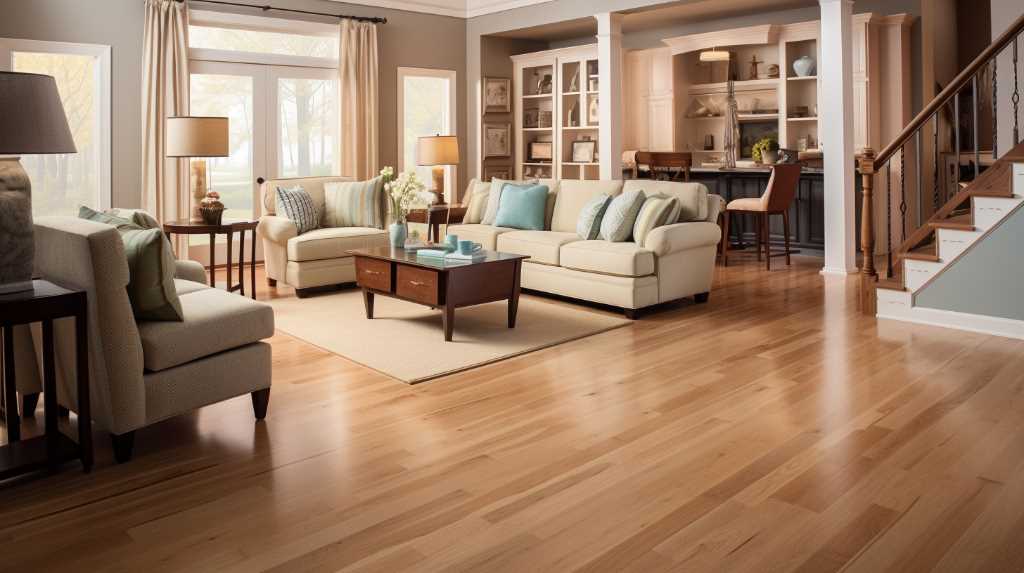
Taking care of your hardwood floors is essential if you want them to remain pristine. Regular cleaning is a crucial part of this maintenance routine, as it helps to remove dirt, dust, and other debris that can accumulate on the surface. Additionally, occasional repairs and refinishing may be necessary to address any damage or wear over time. By prioritizing these tasks and paying attention to detail, you can ensure that your hardwood floors remain beautiful and durable for years.
When it comes to cleaning your hardwood floors, consistency is critical. Regularly sweeping or vacuuming the surface to remove loose dirt and debris is a good starting point. However, it’s important to avoid abrasive cleaners or harsh chemicals that can damage the finish. Instead, opt for a gentle, pH-neutral cleaner designed for hardwood floors. By following these cleaning practices consistently, you can help prevent scratches, discoloration, and other forms of damage.
In addition to routine cleaning, occasional repairs may be necessary to maintain the integrity of your hardwood floors. This might involve addressing minor issues such as scratches or dents, which can be fixed using wood putty or touch-up kits. Hiring a professional to assess and repair the problem may be necessary for more substantial damage, such as warped or loose boards. By promptly addressing these repairs, you can prevent further damage and extend the lifespan of your hardwood floors.
Refinishing is another crucial aspect of hardwood floor maintenance. Over time, the finish on your hardwood floors can become dull or worn, making your floors look tired and lacklustre. Refinishing involves sanding the surface and applying a new finish, restoring your floors’ natural beauty and shine. This process should be done every 5-10 years, depending on how much foot traffic and wear your floors endure. By investing in refinishing, you can keep your hardwood floors looking like new for many years.
Regular Cleaning and Care Practices
Proper maintenance is critical to extending the life of hardwood flooring. Regular cleaning, avoiding excessive water, and using appropriate cleaning products are vital. The Environmental Protection Agency (EPA) suggests using microfiber mops and pH-neutral cleaners to maintain the wood’s integrity. Preventive measures like using floor mats and avoiding high heels can also significantly reduce wear. Let’s explore the best practices:
Regularly sweep or vacuum.
To maintain the impeccable appearance of your floors, removing any dirt and debris that may have been deposited on them is imperative. This straightforward action ensures that your floors retain their pristine look and prevents the buildup of abrasive materials that could cause scratches. By taking this simple step, you are safeguarding the smooth surface of your floors and ensuring their long-lasting appeal. So, make it a habit to sweep away the dirt regularly, and your floors will thank you!
Place mats at entrances
By implementing a simple tactic, you can drastically decrease the amount of dirt and debris that finds its way onto your pristine floors. It might seem inconsequential, but this small action can substantially impact your cleaning. Just imagine a quick and efficient solution to reduce the time spent sweeping and mopping. It’s a game-changer!
Wipe up spills immediately.
Although hardwood is generally easy to clean, spills left unattended can lead to long-term damage. By promptly addressing liquid mishaps, you can preserve the pristine condition of your flooring. Remember, neglecting spills can compromise the structural integrity of your hardwood. Stay ahead of the game by wiping away the mess when it occurs on your natural wood flooring or luxury vinyl flooring. Your floors will thank you later.
By incorporating these regular cleaning procedures into your maintenance routine, you can ensure that your hardwood flooring withstands the test of time, retaining its beauty and durability for years to come.
Professional Maintenance and Restoration Techniques
Professional maintenance can drastically extend the life of hardwood floors. Techniques like sanding, refinishing, and sealing can revive even decades-old floors. A report by the National Association of Realtors indicates that 54% of home buyers are willing to pay more for hardwood floors, underscoring the value of professional upkeep in maintaining the floor’s appearance and home value.
Optimizing the Lifespan of Durable Hardwood Flooring: The Ideal Schedule for Refinishing Hardwood Floors
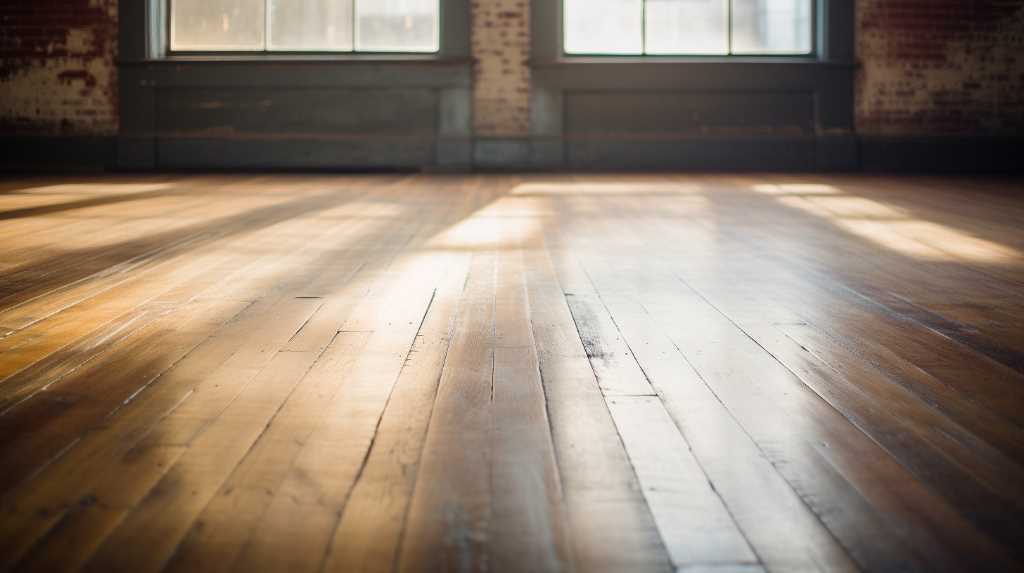
Understanding the optimal frequency for refinishing your hardwood floor is essential for maximizing its lifespan. There are various factors to consider, including the type of flooring, the amount of foot traffic, and the level of maintenance. By striking a balance between refinishing and avoiding excessive treatments, you can ensure the longevity of your hardwood floor.
Regarding hardwood flooring options, there are two main types: solid wood and engineered wood floors. Solid wood floors have a thicker layer, allowing for more opportunities for refinishing. In contrast, engineered wood floors have a thinner top layer, limiting the number of times they can be refinished.
If you prioritize longevity, solid wood flooring is the way to go. Solid wood floors can be refinished up to ten times, depending on the thickness. This offers significant value and extends the life of your floor. On the other hand, if you choose engineered wood floors or laminate flooring, you need to be prepared for replacement rather than refinishing when they wear.
In terms of frequency, solid hardwood floors typically require refinishing every 10 to 20 years. However, this timeframe can vary depending on how much foot traffic your floor experiences. Engineered wood floors, with their thinner top layer, may only last 5 to 10 years before needing attention.
Remember, it is crucial to approach hardwood floor refinishing judiciously. Overdoing the refinishing process can cause more harm than good, potentially damaging the integrity of your floor. To make the best decision for your floor’s longevity, it is always advisable to consult with a professional.
Navigating Wear and Tear on Engineered Wood and Solid Hardwood Floors: Maintaining Longevity in Varied Humidity
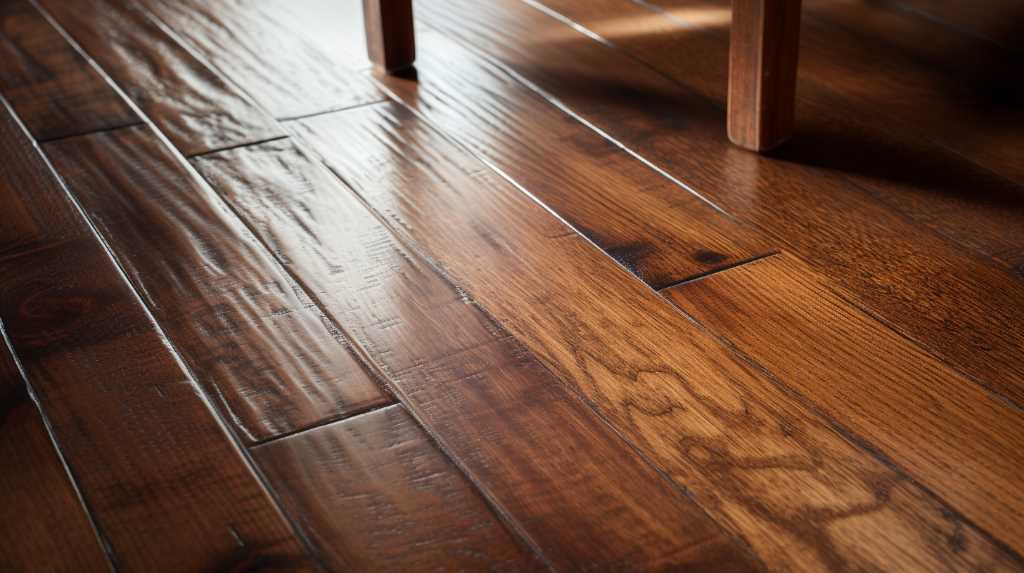
Regular wear and tear can significantly impact the lifespan of your hardwood floors. To effectively manage this, it is essential to understand the factors contributing to wear and tear and implement preventive measures. By doing so, you can ensure that your high-quality hardwood flooring endures the test of time.
One crucial factor that influences the wear and tear on hardwood flooring is the type of wood used. Different woods have varying levels of resilience, with harder woods like oak and maple having higher Janka ratings. These hardwoods are more resistant to daily wear and tear, making them more likely to last longer than softer woods like pine.
Additionally, the thickness of your hardwood flooring is vital to its durability. Thicker woods can withstand more refinishing cycles, reducing wear and tear impact. Furthermore, the finish applied to your floor can provide a protective layer, making it more moisture-resistant and minimizing wear.
Despite taking preventive measures, it is essential to note that no hardwood flooring is impervious to wear and tear. Regular maintenance, such as sweeping and mopping, is vital to prolonging the lifespan of your floor. Choosing finishes that hide signs of wear, such as distressed or hand-scraped finishes, can also contribute to your floor’s longevity.
Selecting the Best Flooring Choice: Evaluating the Hardness and Quality of Hardwood Planks for Durable Flooring
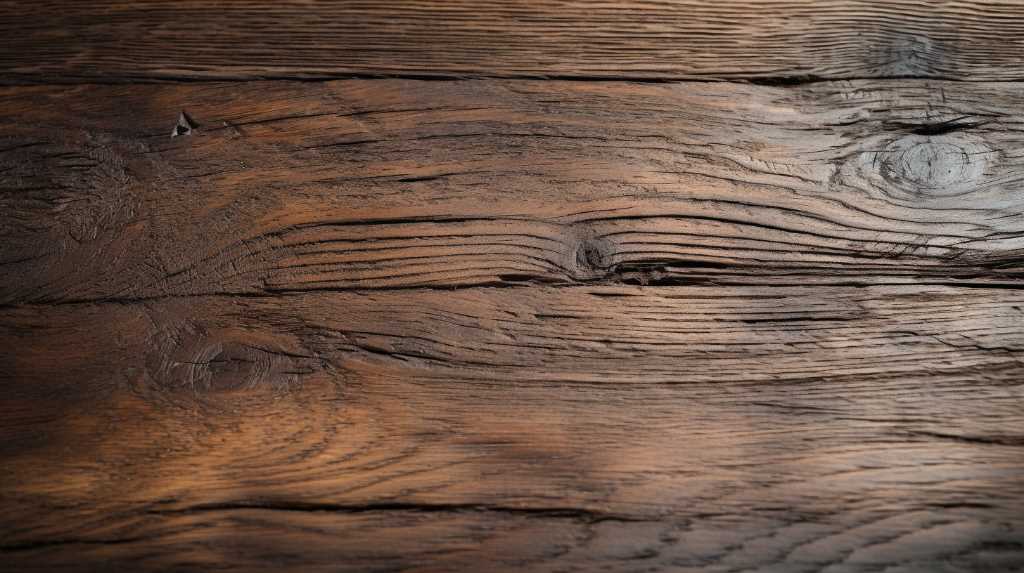
When choosing hardwood flooring, it’s essential to consider the quality and hardness of the wood. These factors play a significant role in determining how well your floors can withstand the test of time. This article will delve into the importance of hardwood quality and hardness, providing valuable insights to make an informed decision.
Hardwood quality encompasses several factors, including hardness, the layers of wood used, and the finish applied. Let’s explore each of these elements in more detail:
- Hardness: To assess a wood’s resistance to dents and wear, experts use the Janka Rating. This industry-standard measurement system rates the hardness of different hardwood species. Higher ratings indicate harder woods for your floor home, like oak flooring, that can better withstand the impact of everyday use. Choosing a hardwood with a higher Janka Rating ensures excellent floor durability and longevity.
- Layers of Wood: For engineered hardwood flooring, the number and thickness of the wood layers significantly impact its durability. More layers often mean excellent stability, especially in environments with moisture changes. By selecting engineered hardwood with multiple layers, you can enhance your floors’ ability to withstand fluctuations in humidity and temperature.
- Finish: The finish applied to your hardwood flooring can make a world of difference in lifespan. High-quality finishes, such as polyurethane or aluminum oxide, provide a protective layer that guards against everyday wear and tear. By investing in a superior finish, you can significantly increase the longevity of your floors and keep them looking beautiful for years to come.
Considering the importance of proper installation cannot be overstated. Expert installation techniques ensure that your hardwood flooring is set up for success immediately. By following industry best practices, you can maximize the durability and lifespan of your floors.
Mastering Hardwood Flooring Installation: Ensuring Durability from Plank to Tile and Carpet to Engineered Wood Floor
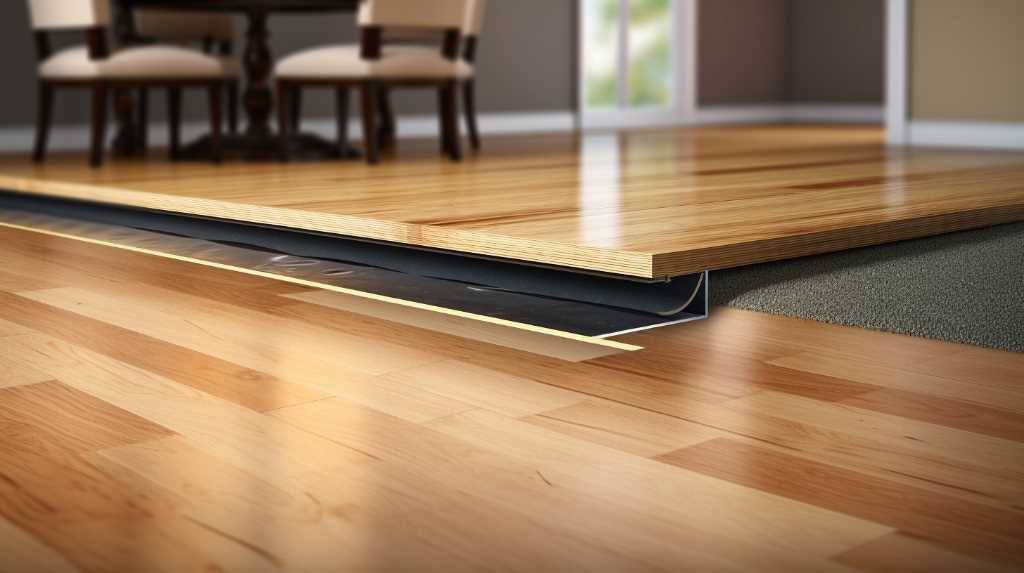
Regarding hardwood flooring, the importance of proper installation cannot be overstated. It not only enhances the aesthetics but also plays a crucial role in the durability and longevity of your investment. So, let’s explore the critical aspects of proper installation that contribute to the long-lasting performance of your hardwood flooring.
- Method: The choice of installation method significantly impacts the stability and durability of the flooring. For example, plank and tongue-and-groove installation for natural wood flooring enhances the overall strength and minimizes the risk of gaps or separations over time.
- Professionalism: While DIY may seem tempting, it’s essential to consider the professionals’ expertise. Seasoned experts have in-depth knowledge of different installation methods and can select the one that best suits your specific flooring type. Their professionalism prevents issues like warping, buckling, or uneven wear, ensuring a flawless installation.
- Quality: Using high-quality installation techniques is crucial for the longevity of your hardwood flooring. From preparing the subfloor to using appropriate adhesives and fasteners, every step should be executed with precision and attention to detail. This commitment to quality ensures that your flooring can withstand the test of time.
- Choice: Making the right choice regarding installation methods and materials significantly impacts the performance and lifespan of your hardwood flooring. Factors such as the type of subfloor, moisture levels, and environmental conditions should be considered when determining the most suitable installation approach.
By considering these aspects and entrusting the installation to professionals, you can maximize the lifespan of your hardwood flooring and avoid premature wear and tear. While DIY may seem like a cost-saving option, the expertise and experience of professionals are invaluable in ensuring a long-lasting and visually appealing result.
[STATISTICS/REVIEWS/REFERENCES]:
- According to a National Wood Flooring Association study, improper installation is the leading cause of flooring failures. (Reference: www.nwfa.org)
- Customer reviews consistently highlight the importance of professional installation in maintaining the beauty and longevity of hardwood flooring. (Example: “I decided to hire professionals for installation, and I couldn’t be happier with the results. The flooring looks stunning and has held up perfectly over the years.”)
Frequently Asked Questions
Can Hardwood Floors Last 200 Years?
Hardwood floors have long been admired for their durability and timeless beauty. While it may be unlikely for hardwood floors to last a staggering 200 years, with proper care and maintenance, they can certainly stand the test of time.
What Is the Life Expectancy of Hardwood Floors?
How long can hardwood floors last? Well, the lifespan of your hardwood floors can vary greatly, ranging from 20 to 100 years. Several factors come into play when determining the longevity of your floors, including the durability of the wood species, the quality of installation, and the maintenance practices employed.
What Is the Best Wood Flooring for Longevity?
When choosing a wood flooring option that offers longevity, it’s essential to consider factors such as durability and moisture resistance. Oak and maple are famous for their durability and ability to withstand wear and tear over time.
Sources:
- WoodFloorDoctor.com: “Choosing a Wood Floor for Durability and Longevity”
- FlooringInc.com: “How to Make Hardwood Floors Last Longer”
How Long Is Hardwood Floor Good For?
How long can you expect your hardwood floor to last? With proper maintenance and expert installation, your hardwood floor can endure for 100 years or even longer. However, several factors come into play when determining the lifespan of your hardwood floor, including the durability of the wood species, environmental conditions, the durability of the finish, and the amount of foot traffic it receives.
Choose Canadian Home Style for your Vancouver Hardwood Flooring Projects.
Canadian Home Style is your family-owned and operated flooring retailer with a showroom in North Vancouver, BC. We provide full-service commercial and residential flooring solutions across the Lower Mainland with an extended warranty. We are proud BC Floor Covering Association (BCFCA) and the National Wood Flooring Association (NWFA) members. In addition, we have won the Consumer’s Choice Awards back-to-back in 2021, 2022, 2023 and 2024 for our commitment to business excellence. We are considered the highest-rated flooring experts in Metro Vancouver. We pride ourselves on holding the highest standards in the flooring industry. We have a strict policy of “not selling or displaying any products we wouldn’t want in our homes to uphold our high standards.” Before we select a product to feature, we carefully assess product quality, off-gassing, warranties, and responsible sourcing. Book now to visit our North Vancouver flooring showroom; we can help you choose the perfect floor for your home or business.
Our mission is to help homeowners create beautiful homes that reflect their lifestyles while reducing energy consumption and conserving resources. We provide our clients with innovative products, services and education. Our vision is to become Canada’s leading sustainable flooring solutions provider. Our values include integrity, respect, honesty and transparency. These principles guide us as we strive to provide outstanding customer service.
We believe that our success depends on the success of our clients and their customers. We work hard to ensure our clients get the most out of their investments. Our team consists of highly skilled professionals who are experts in their field. They have years of experience working together and know what works and what doesn’t. They understand how to solve problems quickly and efficiently. We are committed to providing excellent customer service. We listen carefully to our client’s concerns and suggestions. We take these into account when planning and executing projects. We always strive to exceed expectations.
Our Range of Eco-Friendly and Durable Flooring Options
Our range includes environmentally responsible options like bamboo and cork alongside traditional hardwoods. These products are durable, sourced, and manufactured with sustainability in mind. By choosing these options, homeowners contribute to a greener future, a vital consideration in today’s environmentally aware market.
Services We Offer:
Main Areas of Service in British Columbia:
| Entity | Description | Source |
|---|---|---|
| Hardwood | Dense wood from deciduous trees, often used in high-quality furniture, flooring, and construction. | Source |
| Janka Hardness Test | A test to measure the hardness of wood, indicating its durability and resistance to wear and damage. | Source |
| Wood | A versatile natural material derived from trees, widely used in construction, furniture, and numerous other areas. | Source |
| Quercus Rubra | Also known as Red Oak, a type of hardwood known for its strength, durability, and beauty. | Source |
| Oak | A common hardwood species, valued for its strength and appearance in various woodworking projects. | Source |
| Hickory | A type of hardwood known for its extreme hardness and strength, used in tool handles, furniture, and flooring. | Source |
| Wood Flooring | Flooring made from timber, available in various styles, and known for its aesthetic appeal and durability. | Source |
| Polyurethane | A polymer used as a finish for wood flooring, offering protection and a glossy finish. | Source |
| Varnish | A transparent, hard protective finish or film primarily used in wood finishing. | Source |
| Humidity | The amount of water vapor in the air, which can affect wood flooring and furniture by causing expansion or shrinkage. | Source |
| Refinishing | The process of reapplying finish to wood flooring to restore its appearance or protect it from damage. | Source |
| Powder Coating | A dry finishing process used on metals, plastics, and medium density fiberboard, including some flooring types. | Source |
| Laminate Flooring | A multi-layer synthetic flooring product, designed to mimic the appearance of real wood. | Source |
| Do It Yourself (DIY) | The practice of building, modifying, or repairing things without the direct aid of experts or professionals. | Source |
| Engineered Wood | Manufactured wood products combining layers of hardwood and plywood, offering stability and versatility. | Source |
| Floating Floor | A method of installing floors where the flooring material “floats” over the subfloor instead of being nailed down. | Source |
| LL Flooring | A company specializing in hardwood, laminate, and engineered wood flooring products and accessories. | Source |
| Vacuum | A device that uses an air pump to create a partial vacuum to suck up dust and dirt, commonly from floors. | Source |

